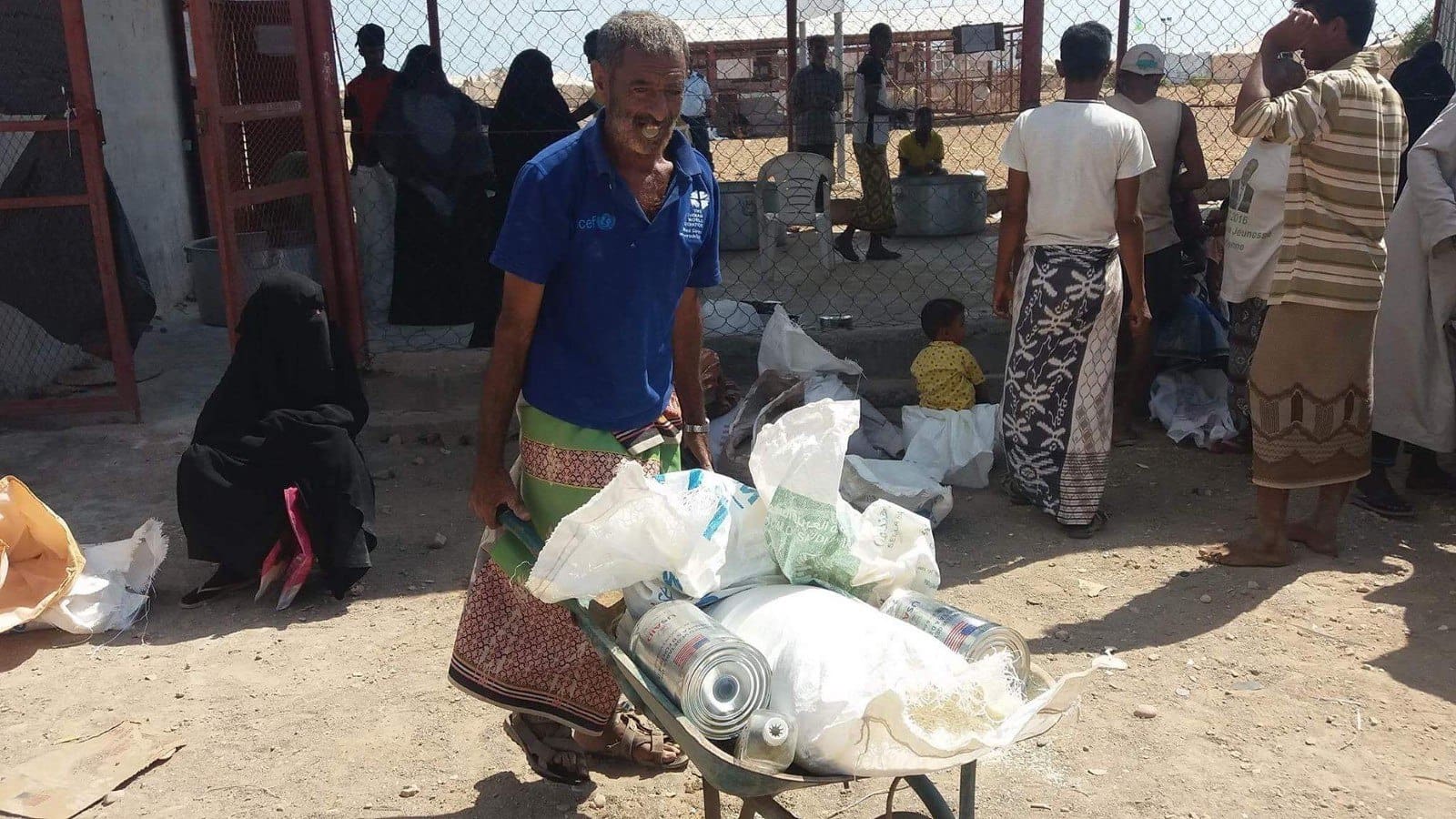
When Refugees Rebuild Their Lives, WFP is There
Three years ago, Fathia and her husband Ado left all they had in Yemen to seek safety across the Red Sea in Obock, Djibouti. They found refuge inside the Markazi refugee camp.
“At the beginning, camp conditions were difficult for us because we were used to a comfortable life in Yemen,” she said. “Thanks to my husband’s salary, I could provide decent meals to my family and send my three children to school.”
Ever since, they have watched conflict and destruction push their home country to the brink of famine. Tens of thousands of families like theirs have fled what is now considered the world’s largest hunger crisis, including roughly 38,000 Yemeni refugees who have made their way to Djibouti.
As the civil war enters its fourth year, the World Food Programme (WFP) is doing more for refugees like Fathia and Ado who have no ability to return to their homes. Where conditions allow it, WFP is increasingly providing refugees with cash assistance, helping families rebuild their lives by giving them the opportunity to choose the foods they want to buy and helping local economies flourish.
Refugees receive money transfers that allow families to diversify their diet by buying the food they prefer at local stores. Meanwhile, WFP provides monthly distributions of staple foods, as well as specially-designed nutritional supplements for malnourished children.

WFP/Datto Gaas
This means Fathia and Ado don’t just provide wheat flour, beans, cooking oil, sugar and salt for their family. With an additional 500 Djiboutian Francs, they can buy vegetables and other fresh foods like fish, condiments, and milk to nourish their children.
“Eating fish is part of our culture,” Fathia said.
The introduction of cash assistance has not only brought much-needed relief for refugee families but also provided a considerable boost for Djibouti’s economy, with thousands of refugee shoppers buying food in local shops and markets.
With only four retailers in the camp, WFP gave them each a loan to help ensure they had enough food stock to meet the increase in demand. The retailers met certain conditions to receive the loan, including being located inside the camp and offering fresh food in their shops.
It’s just one way that WFP is not only saving lives, but also changing lives for the better.
“With this cash from WFP, we have the feeling of finding our identity again, the one we had before the war in Yemen,” she said.




